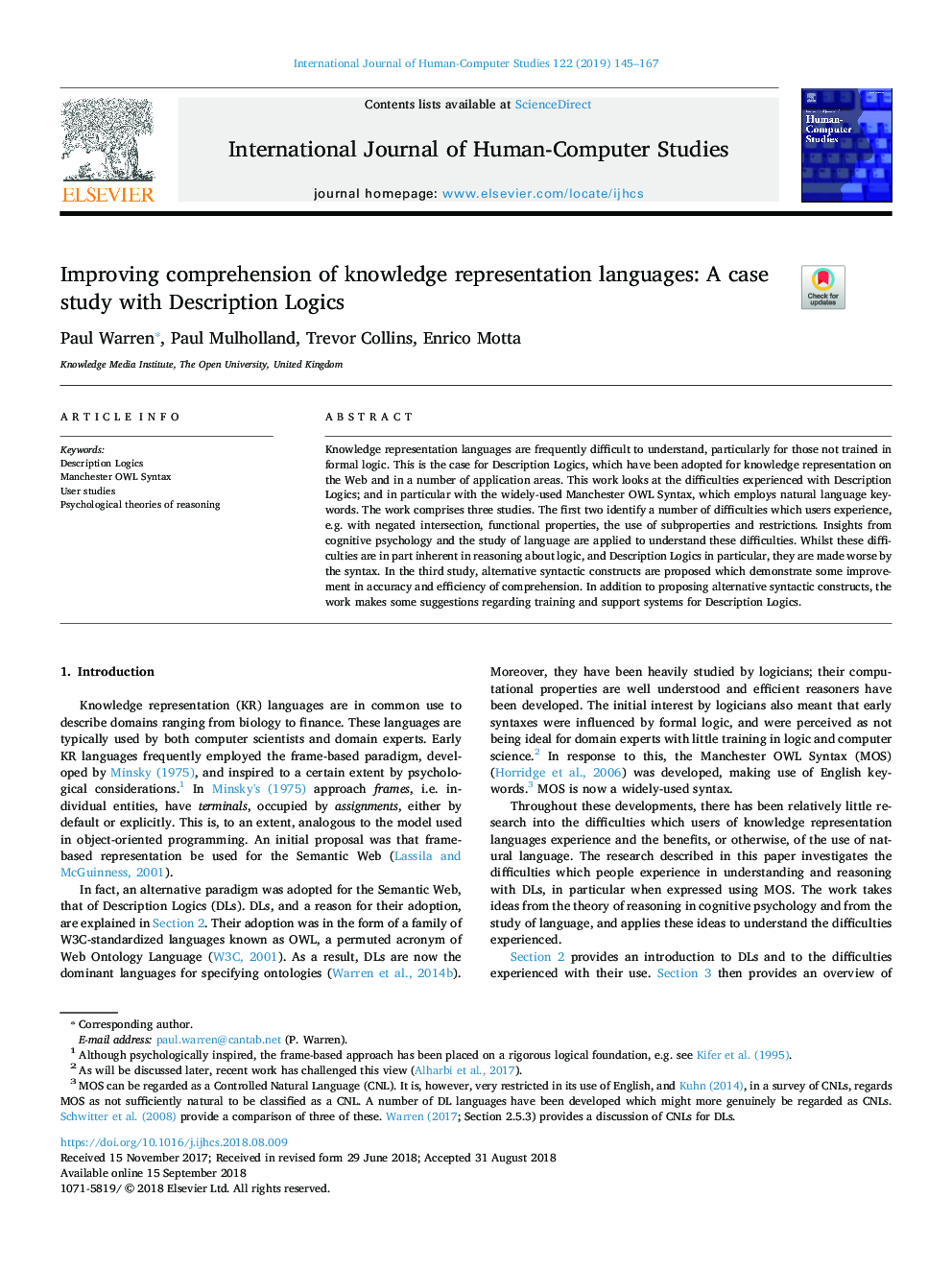| Article ID | Journal | Published Year | Pages | File Type |
|---|---|---|---|---|
| 11031637 | International Journal of Human-Computer Studies | 2019 | 23 Pages |
Abstract
Knowledge representation languages are frequently difficult to understand, particularly for those not trained in formal logic. This is the case for Description Logics, which have been adopted for knowledge representation on the Web and in a number of application areas. This work looks at the difficulties experienced with Description Logics; and in particular with the widely-used Manchester OWL Syntax, which employs natural language keywords. The work comprises three studies. The first two identify a number of difficulties which users experience, e.g. with negated intersection, functional properties, the use of subproperties and restrictions. Insights from cognitive psychology and the study of language are applied to understand these difficulties. Whilst these difficulties are in part inherent in reasoning about logic, and Description Logics in particular, they are made worse by the syntax. In the third study, alternative syntactic constructs are proposed which demonstrate some improvement in accuracy and efficiency of comprehension. In addition to proposing alternative syntactic constructs, the work makes some suggestions regarding training and support systems for Description Logics.
Keywords
Related Topics
Physical Sciences and Engineering
Computer Science
Artificial Intelligence
Authors
Paul Warren, Paul Mulholland, Trevor Collins, Enrico Motta,
